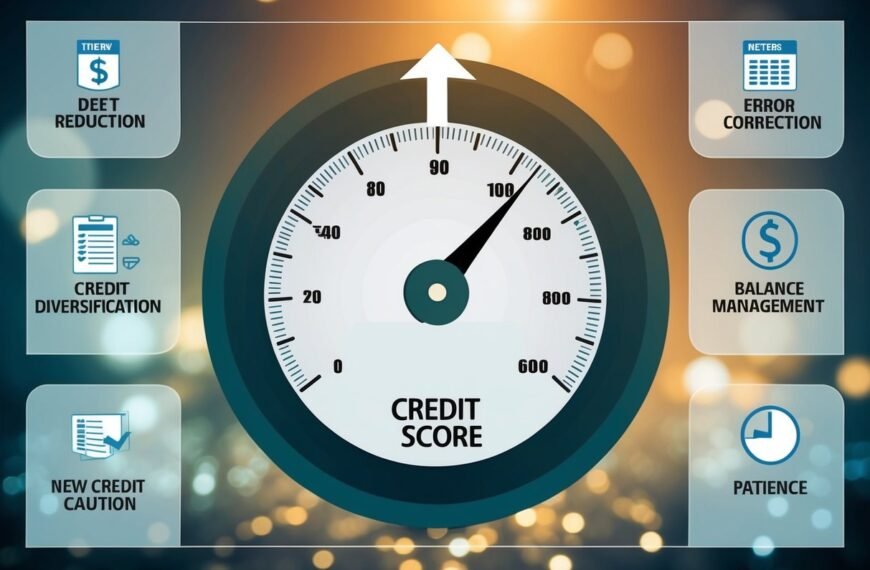
Explore the earlier installment of this series in Part 1-Understanding the Basics of Credit Scores to build a comprehensive understanding before delving into this chapter.
In this chapter, you will explore the value of financial coaching and why credit improvement matters. Throughout the article, you will discover what a financial coach does, how they build trust and rapport with their clients, and the importance of conducting a comprehensive credit review. Additionally, the article will discuss the power of accountability and the success stories of clients who have benefited from financial coaching. By the end, you will have a clearer understanding of the role financial coaches play in helping individuals improve their credit and be inspired to consider seeking their guidance. Keep reading to uncover the insights and teaser for upcoming blogs in the series on financial coaching.
What Does a Financial Coach Do?
Defining the Role of a Financial Coach
When it comes to improving your financial situation and achieving your goals, a financial coach can be an invaluable resource. But what exactly does a financial coach do? The role of a financial coach is to provide guidance and support in managing your finances, helping you make informed decisions, and empowering you to take control of your financial future. They work with you to create a customized plan tailored to your individual needs and goals.
Tailoring Guidance to Individual Needs
One of the key aspects of a financial coach’s job is to tailor their guidance to your individual needs. They understand that everyone’s financial situation is unique, and what works for one person may not work for another. By taking the time to understand your specific goals, challenges, and circumstances, a financial coach can provide personalized advice and strategies that are tailored to help you achieve your financial goals.
Setting Clear Goals with Clients
Setting clear goals is an essential part of the financial coaching process. A financial coach will work with you to identify your short-term and long-term financial goals, whether it’s paying off debt, saving for a down payment on a house, or planning for retirement. By setting clear goals, you have a roadmap to follow and a clear vision of what you want to achieve. Your financial coach will help you break down these goals into actionable steps, making them more attainable and easier to track your progress along the way.
The Trust Factor in Financial Coaching
Building Trust and Rapport
Building trust and rapport is crucial in any coaching relationship, and financial coaching is no exception. A financial coach understands the importance of creating a safe and non-judgmental space where you can openly discuss your financial concerns and goals. They listen attentively, ask probing questions, and strive to understand your unique circumstances, building trust and rapport along the way. This trust is essential for you to feel comfortable sharing personal financial details and opening up about your financial struggles and aspirations.
The Importance of Confidentiality
Confidentiality is one of the cornerstones of financial coaching. Your financial coach understands that the information you share with them is sensitive and personal. They maintain strict confidentiality and adhere to professional ethics, ensuring that your financial information remains secure and private. This confidentiality allows you to be completely honest and transparent without fear of judgment or your information being shared with anyone else.
Client-Centered Approach
A client-centered approach is another critical aspect of financial coaching. Your financial coach puts your needs, goals, and values at the forefront of every decision and recommendation. They understand that financial management is not a one-size-fits-all solution, and what may work for one person may not work for another. By taking a client-centered approach, your financial coach ensures that their guidance aligns with your unique circumstances, preferences, and aspirations.
Assessing Your Credit Situation
Conducting a Comprehensive Credit Review
Improving your credit is often a key goal for many individuals seeking the help of a financial coach. To begin this process, your financial coach will conduct a comprehensive credit review. They will analyze your credit report, looking at factors such as payment history, credit utilization, and derogatory marks. This review provides a snapshot of your current credit situation and helps identify areas for improvement.
Identifying Areas for Improvement
Once the credit review is complete, your financial coach will identify specific areas for improvement. This may include paying off outstanding debts, reducing credit card balances, or addressing any errors or inaccuracies in your credit report. By pinpointing these areas, your financial coach can develop strategies and action steps to address them and improve your credit score.
Creating a Personalized Action Plan
Based on the credit review and areas for improvement, your financial coach will create a personalized action plan. This plan will outline the specific steps you need to take to improve your credit, along with a timeline and milestones to track your progress. Your financial coach will work closely with you to ensure that the action plan is realistic, achievable, and aligned with your financial goals.
The Power of Accountability
Setting Milestones and Targets
Accountability is a powerful motivator when it comes to achieving financial goals. Your financial coach will work with you to set milestones and targets along the way. These targets may include paying off a certain amount of debt within a specific timeframe, increasing your credit score by a certain number of points, or saving a certain amount of money in your emergency fund. By setting these milestones and targets, you have specific goals to work towards and a way to measure your progress.
Regular Progress Check-Ins
To ensure that you stay on track and make progress towards your goals, your financial coach will schedule regular progress check-ins. These check-ins can be in the form of phone calls, video chats, or in-person meetings, depending on your preferences and availability. During these check-ins, your financial coach will review your progress, address any challenges or setbacks, and provide guidance and support to keep you motivated and focused.
Motivating Clients to Stay on Track
Staying motivated throughout your financial journey can be challenging, especially when faced with obstacles or setbacks. Fortunately, a financial coach is there to provide the necessary motivation and support. They understand that setbacks are normal and can help you reframe them as learning opportunities rather than failures. Your financial coach will celebrate your successes, remind you of your progress, and help you stay focused on your long-term goals, keeping you motivated along the way.

Success Stories: How Financial Coaching Has Helped Clients
Real-Life Examples of Credit Improvement
The impact of financial coaching on credit improvement can be truly transformative. Many clients have experienced substantial improvements in their credit scores with the help of a financial coach. For example, John, a client who had significant credit card debt and a low credit score, worked closely with his financial coach to develop a budget, pay off his debts, and improve his credit utilization. As a result of their collaboration, John was able to increase his credit score by over 100 points within a year.
Testimonials from Satisfied Clients
Numerous clients have shared their positive experiences and success stories after working with a financial coach. They highlight the guidance, support, and motivation provided by their financial coach as instrumental in achieving their financial goals. Clients often express gratitude for the personalized strategies, accountability, and sense of empowerment gained through the coaching process.
Case Studies of Significant Credit Score Increases
In addition to individual success stories, case studies can provide a deeper understanding of how financial coaching can lead to significant credit score increases. For instance, Sarah, a client struggling with poor credit due to past financial difficulties, enrolled in a financial coaching program. Through a combination of credit review, action planning, and accountability, Sarah was able to increase her credit score by 150 points over the course of two years. This improvement not only allowed her to secure better interest rates on loans but also boosted her overall financial confidence and well-being.
Conclusion
Recap of the Role of Financial Coaches
Financial coaches play a vital role in helping individuals improve their credit and achieve their financial goals. They provide tailored guidance, set clear goals, and assist in creating personalized action plans. By building trust, maintaining confidentiality, and taking a client-centered approach, financial coaches create a supportive and empowering environment for their clients.
Encouraging Readers to Consider Financial Coaching
If you are looking to improve your credit, take control of your finances, and achieve your financial goals, consider working with a financial coach. Their expertise and guidance can provide you with the tools and strategies needed to overcome financial challenges and create a brighter financial future.
Teaser for Upcoming Blogs in the Series
In future blogs, we will delve deeper into specific topics related to financial coaching, such as budgeting strategies, debt management techniques, and investment planning. Stay tuned for more valuable insights and tips on how to navigate the world of personal finance with confidence.
Discover more in Part 3-Steps to Monitor and Check Your Credit Score.









